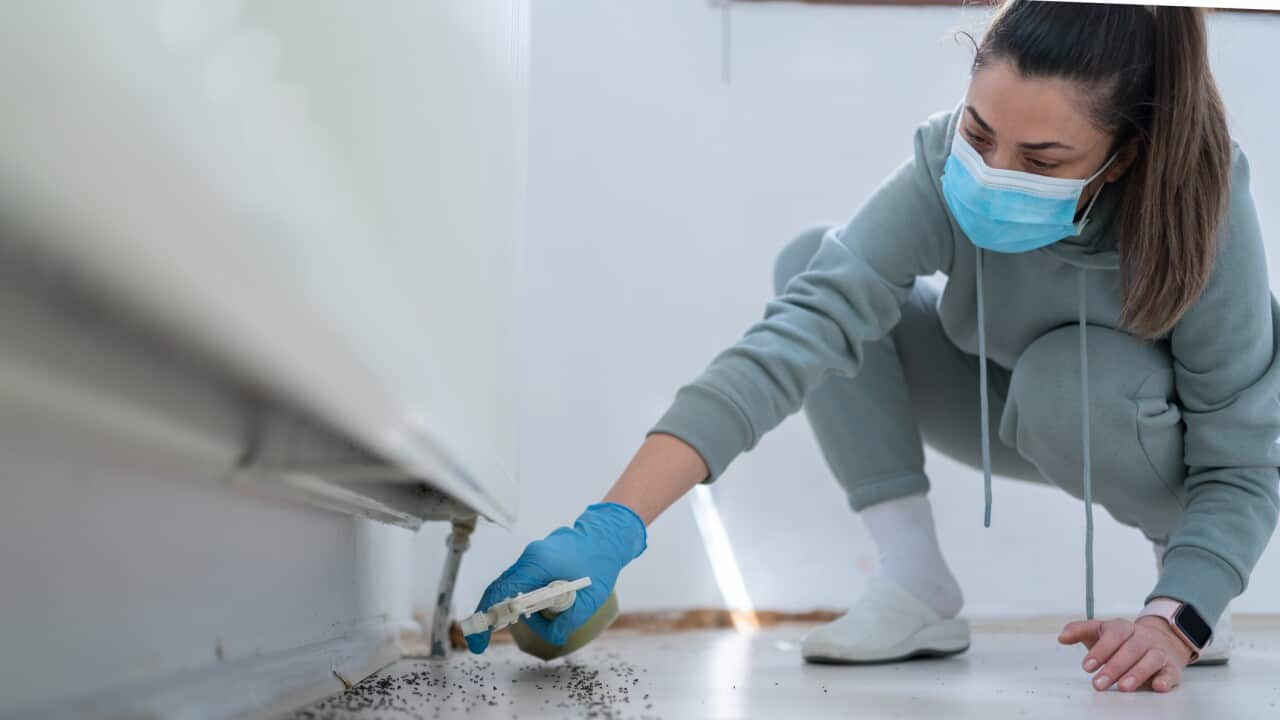Key Points
- Rodents are the usual suspects of winter home invasions, but termites are mobile all year-round and can have a costly impact.
- Keeping your house clean and tidy, eliminating favorable conditions and entry points for pests are simple, preventive steps for invasions.
- Only use commercially available chemicals and hire pest control operators who are licensed.
Protecting your home against pests should not be overlooked during winter, even for insects like mosquitoes that are typically more active in warmer months.
Insect pests more of a nuisance
Keeping mosquitoes away involves simple measures, such as removing stagnant water from your backyard and installing screens on windows and rainwater tanks.

Cockroaches take advantage of the warm, humid conditions inside your home. Credit: RapidEye/Getty Images
“It’s important to remember where these insects are coming from.
The same can’t be said for cockroaches, which contaminate food and surfaces.
Cockroaches thrive when we’ve got accumulation of rubbish or there’s waste material in the home that they can feed off.
Medical entomologist Cameron Webb
“A fully mature bedbug is best described looking very similar to something like an apple seed… but their eggs and at early stages of their life they are very small.”

“If you have an insect pest, you don’t have to reach for insecticides and chemicals immediately because particularly their use outdoors can have impacts on beneficial insects that may also be active during cooler months,” Dr Webb says. Credit: Philippe TURPIN/Getty Images/Photononstop RF
In most cases, they will be brought into your home unknowingly, from your travels, staycation, or a guest, potentially leading to an infestation, as they are not always easy to spot.
“They get into the very tight little cracks that might be in furniture, in the joints, the hinges and so forth, they tuck themselves deep into those gaps and cracks and are very difficult to detect,” Mr Gay explains.
Rodents, the prominent winter invader
“In the southern states, Victoria, South Australia, or Western Australia and parts of New South Wales, winter mice tend to be a fairly uniform problem.”

“We see a really big growth of rodents around where people have chickens and do composting because there’s a lot of food that brings them to the area,” says AEPMA’s Rob Boschma. Source: Moment RF / Lea Scaddan/Getty Images
During the warmer months, mice tend to stay outside feeding on whatever they can find and living in areas under the house, in the garage, the roof, or dense foliage in the garden.
“But as the cooler weather comes on, they tend to push in and once they get into a home, it’s warm and it’s got the food, rarely are they going to leave by their own accord,” he explains.
Professional pest control
“Having inspected a lot of homes over many years, there’s virtually not a single roof that you go into, either of a new or old building, that doesn’t have some evidence of rodents.

Members of the Australian Environmental Pest Managers Association are licensed and insured to conduct pest control operations. Credit: Group4 Studio/Getty Images
“Most people have some rodents in their house. It’s just the number and the level that makes the difference.”
Mr Boschma outlines the following common conditions in a property that attract mice and rats that people should be aware of.
Vines and bushes that abut houses, subfloor areas under the house where there’s gaps and holes that let rodents come in quite easily. Other things include harborage and building refuse.
AEPMA Board member Rob Boschma
“And if you’re composting, have a concealed off the ground compost.”
Keep an eye out for termites
The precise starting point of a termite infestation cannot be known, but it is estimated that most people have it for at least five years before they become aware of it.

Termites can eat away wooden structures in and around your home. Credit: bruceman/Getty Images
“Then generally the door will fall off the hinges, or the foot goes through the floor, or the vacuum cleaner goes through the skirting board… and that’s when they’re alerted to the fact that termites have made it into the house.”
“It sort of depends on the situation. But either way, you should speak to the property manager and make sure that all parties have agreed to whatever is being commissioned.”
In an emergency call triple zero (000) for an ambulance.














